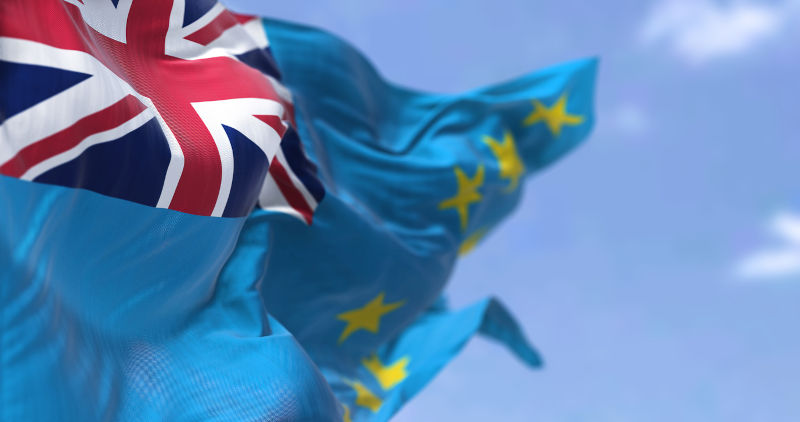Australia’s offer to Tuvalu, allowing residents facing displacement from climate change to resettle in Australia, was clearly a good deed. It was an act of humane generosity. But the good deed was besmirched by the conditions attached to it. In return for this good humanitarian deed, Australia will have effective veto power over Tuvalu’s security arrangements with any other country.
Medieval poet Geoffery Chaucer wrote of the ‘perfect gentle knight’ whose chain-mail was sullied with the blood of those he had killed. It is an ironic observation on the way that even good deeds can go bad.
If Chaucer were alive today he could well have made the same observations of Australian Prime Minister Albanese and his participation in the Pacific Islands Forum.
Australia’s offer to Tuvalu, allowing residents facing displacement from climate change to resettle in Australia, was clearly a good deed. It was an act of humane generosity. But the good deed was besmirched by the conditions attached to it.
In return for this good humanitarian deed, Australia will have effective veto power over Tuvalu’s security arrangements with any other country. Tuvalu is bound to Australia for not just defence, but must seek Australia’s mutual agreement on any of Tuvalu’s security arrangements, covering defence, policing, border enforcement, cybersecurity and critical infrastructure. Although not directly stated, this is clearly aimed at China.
It is an interesting interpretation of diplomacy given that Australia has railed against what it sees as bully behaviour in the Pacific. Australia seems happy to take a page from the American playbook and use these bully boy tactics. The agreement is a close copy of the conditions the Americans apply to the Marshall Islands, Palau and the Federated States of Micronesia. They all have a Compact of (so called) Free Association with the United States. This gives Washington authority over their defence issues in return for US government services and the right to live in the US.
For all the loud claims about sovereignty in the Pacific Islands, it is these Australian actions that speak the loudest. A security agreement is fair enough, but holding a veto over sovereign decisions is not.
Leaders assembled for the Pacific Islands Forum had an ideal opportunity to observe the difference in the way that the United States and its allies, and China approach co-operation with the Pacific and how they acknowledge their concerns.
Australia has again become the largest provider of aid in the Pacific and that is a change welcomed by the Pacific Islands at the forum. However, the delivery of that aid and support comes at a new cost. Australia pays lip-serve to the idea of Pacific Islands sovereign right to make their own decisions. Australia continues to strenuously deny that its AUKUS nuclear submarines are in breach of the nuclear free Pacific pact to which Australia is a signatory.
One member of the group, the former Tuvalu Prime Minister Enele Sopoaga, said the leaders’ summit “must unanimously call on Australia to stop approving Pacific-killing coal and gas projects. We reiterate that the Pacific Islands Forum should not rubber stamp Australia’s bid” he said.
Assembled under the theme of Our Voices, Our Choices and Our Pacific Way, the security deal with Australia went against the spirit of the meeting by limiting sovereign choice.
The claim by Western nations to have no strings attached suggests foreign aid is a charitable exercise bestowed by an affluent West on developing nations. Clearly in this case, Australia has used its good deed aid to shape the political and social environment to meet Australia’s aspirations and domestic political agenda.
The aid delivery is bundled with clear ideological and security directives. These have become the bully conditions of aid and not all in the Pacific are comfortable with this bully behaviour.
Solomon Islands Prime Minister Sogavare is perhaps the strongest proponent and protector of sovereign independence in the region. Others, like Fiji and Tonga, are becoming more cautious in their approach to managing offers of aid.
China is more honest when it talks of win-win aid and development. This aid comes without ideological chains that bind the recipients to social and political policies that may not be suited to the long term interests of the islands. China aid is delivered under the umbrella of the Global Development Initiative. This policy carries no ideological content that requires a country to adopt a political system or social structure. It does not tie countries to particular forms of Government, or social expectations, military alliances or exclusive security arrangements.
Pacific Island leaders make rational decisions in their search for funding. They look to China to do transport and power and to Western donors to do social sectors. They turn to private bondholders to provide short-term budget finance.
Of course all aid is an exercise in soft power, but the value of aid is diminished when it is delivered using strong-arm tactics. Australia’s binding of a good deed with an exclusive security obligation sullies and undermines Australia’s status in the region because it entrenches the power of the bully. It is not how you treat those who you claim are part of a Pacific family.
It’s a good deed gone bad.

Daryl Guppy
Daryl Guppy is an international financial technical analysis expert. He has provided weekly Shanghai Index analysis for mainland Chinese media for more than a decade. Guppy appears regularly on CNBC Asia and is known as “The Chart Man”. He is a former national board member of the Australia China Business Council. The views expressed here are his own.
